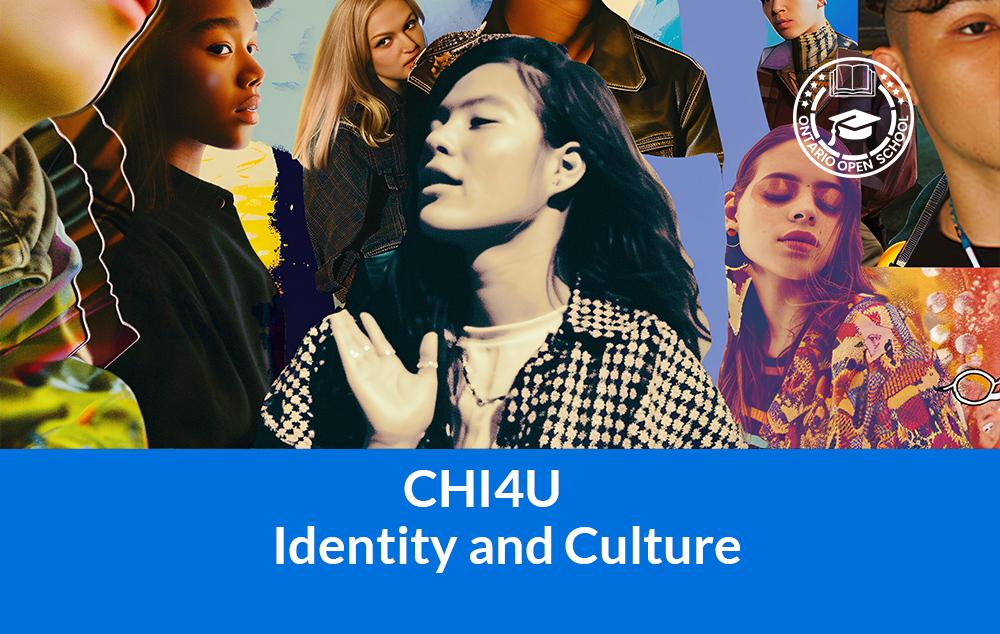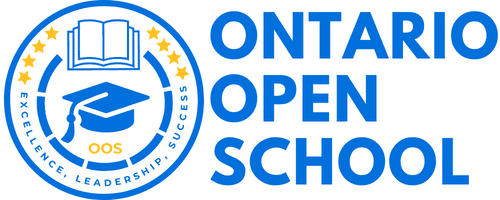- info@ontarioopenschool.com
- 647-494-4499
-
Unit 100 - 29 Gervais Drive, North York, ON.
M3C 1Y9
Copyright 2024 Ontario Open School Inc. All Rights Reserved.
This course traces the history of Canada, with a focus on the evolution of our national identity and culture as well as the identity and culture of various groups that make up Canada. Students will explore various developments and events, both national and international, from pre–contact to the present, and will examine various communities in Canada and how they have contributed to identity and heritage in Canada. Students will investigate the development of culture and identity, including national identity, in Canada and how and why they have changed throughout the country’s history. They will extend their ability to apply the concepts of historical thinking and the historical inquiry process, including the interpretation and analysis of evidence, as they investigate the people, events, and forces that have shaped Canada.
Unit Order | Unit Name | Suggested Time |
|---|---|---|
| Unit 1 | Canada, Origins to 1774 Students will begin the course by examining the different skills and inquiry development to be employed throughout the course. In particular, the students will be encouraged to use the six historical thinking concepts: Historical Significance, Evidence, Continuity and Change, Cause and Consequence, Historical Perspective, and Ethical Dimension. The first unit introduces Canada’s indigenous peoples and will examine the complex co-existence of these populations with Europeans from first contact, colonization, and settlement. The unit will examine mercantilism and the Seigneurial System as well as the implications of the Seven Years’ War, the pivotal Battle of The Plains of Abraham (1763) and the fallout that ensued thereafter with the Pontiac Rebellion and the signing of the Royal Proclamation of 1763. The unit will end with the production of an electronic Annotated Map of early Canada as well as a Unit Test.
| 25 hours |
| Unit 2 | Canada, 1774 to 1867 This second unit examines a plethora of issues that contributed to the development of a nation. Among these include Ryerson’s Methodism, the Absentee Landlord Question, Clergy and Crown Reserves, New France Colonization, and The Durham Report. It will also examine the implications of the Napoleonic Wars in Europe on the Americas and the spillover that resulted in the War of 1812, along with key figures such as Sir Isaac Brock, Tecumseh, and Laura Secord. This will be followed by studies in annexation movements, the abolition of slavery in Britain and its colonies, the development of the Underground Railroad, the Trent Incident, the Fenian Raids, the Invasion of St. Albans, and the Reciprocity Treaty of 1854. The unit will conclude with an Annotated Timeline and a Unit Test.
| 26 hours |
| Unit 3 | Canada, 1867 to 1945 The third unit begins with questions surrounding autonomy and independence, confederation, as well as questions with national defense, peacekeeping, and alliances. Among the issues raised in Unit 3 are the Manitoba Schools Act, Anti-Chinese Riots in B.C., Maritime Rights, the Winnipeg General Strike, the Ottawa trek, the Regina Riot, the Christie Pits Riot, and the Halibut Treaty. The friction between Anglophone and Francophone Canadians will also be examined in detail with significant attention given to the two world wars. The unit will conclude with the examination of Newfoundlanders to Canada’s international efforts and their eventual move towards confederation. The unit will conclude with an essay from a list of available topics as well as a Unit test. | 26 hours |
| Unit 4 | Canada since 1945 The final unit begins where the Second World Warends. Canada’s contribution in the restoration of post-war Europe through peacekeeping initiatives and the welcoming of refugees and immigrants will be a major focus in this unit. Canada’s role in NORAD and the emerging threat of nuclear conflict in the aftermath of NATO and Warsaw Pact alliances. This unit will also investigate the challenges of marginalized groups within Canada such as women, First Nations peoples, visible minorities, the disabled and the LGBTQ community. These questions culminate in the enduring vision of defining what exactly it is to be Canadian. The unit will conclude with a presentation from a list of available topics and a unit test before concluding the course with a final exam.
| 25 hours |
| Final Evaluation 30% | Final Culminating Assignment Final Exam
| 6 hours 2 hours |
| Total | 110 Hours |
A wide variety of instructional strategies are used to provide learning opportunities to accommodate a variety of learning styles, interests and ability levels. These strategies include, but are not limited to:
|
Strategies marked with “x” are used in the course. |
|||
| Direct Instruction (teacher-led) | x | Class Activity (teacher facilitation) |
x |
|
Direct Instruction (discussion possible) |
x | Experiential learning (Learn by doing) | x |
| Class Discussion (teacher facilitated) | x | Worksheets/Surveys |
x |
|
Small Group Discussion |
x | Individual or Group Research | |
| Partner Discussion/Conferencing | x | Teacher modeling |
x |
|
1:1 Conferencing Teacher & Student |
x | Text-based modeling | |
| Teacher reading to class | x | Use of Computers / Internet Silent individual reading |
x |
|
Silent individual reading |
x | Use of video tape or audio materials | |
|
Group based reading |
x |
Role Playing |
|
| Independent Work (teacher facilitation) | x | Presentations |
x |
|
Group Work (teacher facilitation) |
x | Guest Speaker/Interview/Questions | |
| Brainstorming | x | Field Trip |
|
Purpose
The primary purpose of assessment is to improve student learning. Assessment relates directly to the expectations for the course.
A variety of assessments for and as learning are conducted on a regular basis to allow ample opportunities for students to improve and ultimately demonstrate their full range of learning and for the teacher to gather information to provide feedback. Assessment tasks relate to the success criteria set out in lesson plans. Success criteria allow students to see what quality looks like.
Evaluation is the process of judging the quality of student work in relation to the achievement chart categories and criteria and assigning a percentage grade to represent that quality. Evaluation is based on gathering evidence of student achievement through:
Assessment for Learning – we provide feedback and coaching. Assessment FOR Learning is the process of seeking and interpreting evidence for the use of learners and their teachers to decide where the learners are in their learning, where they need to go, and how best to go there.
Assessment as Learning – we help students monitor progress, set goals, reflect on their learning
Assessment AS Learning is the process of the explicit fostering of students’ capacity over time to be their own best assessors, but teachers need to start by presenting and modeling external, structured opportunities for students to assess themselves.
Assessment of Learning – we use assessments to provide evaluative statements about student achievement. Assessment OF Learning is the assessment that becomes public and results in statements of symbols
(marks/grades/levels of achievement) about how well students are learning. It often contributes to pivotal decisions that will affect students’ future.
ASSESSMENT TOOLS
|
Assessment tools marked with “x” are used in the course |
|||
|
Marking schemes |
x |
Rubrics |
x |
|
Anecdotal comments |
x |
Checklists |
x |
|
Rating Scales |
|
||
|
Assessment for Learning |
Assessment as Learning | Assessment of Learning | |||
| Quizzes | Reflective journal | x | Tests |
x |
|
|
Tests |
Exit and Entrance Cards | Presentations | x | ||
| Presentations | KWL Chart | Journals |
|
||
|
Journals |
x | Self/Peer assessment | x | Essays | x |
| Essays | Logs | Models |
|
||
|
Models |
Projects | x | |||
| Projects | x | Demonstrations |
|
||
|
Demonstrations |
Conferencing | ||||
| Conferencing | x | Questioning |
x |
||
|
Questioning |
Independent Study Assignment | x | |||
| Assignment | Art Exhibits |
|
|||
|
Art Exhibits |
Researching | x | |||
| Researching | Reading Aloud |
|
|||
|
Reading Aloud |
Problem Solving (Process focused) | ||||
| Problem Solving | x | Debates | |||
|
Debates |
Work Sheets | ||||
|
Work sheets |
x | Role Playing | |||
|
Role playing |
Direct Instruction | ||||
|
Direct Instructions |
x | ||||
Resources
Grading
Weighting of categories
| Knowledge/Understanding | Thinking/Inquiry | Communication | Application |
| 25 % | 25 % | 25 % | 25 % |

Course Grade | Grade 12 |
|---|---|
Course Code | CHI4U |
Course Category | Canadian and World Studies |
Course Type | University Preparation |
Course Delivery | Online |
Course Duration | 110h |
Course Credit | 1.00 |
Copyright 2024 Ontario Open School Inc. All Rights Reserved.
